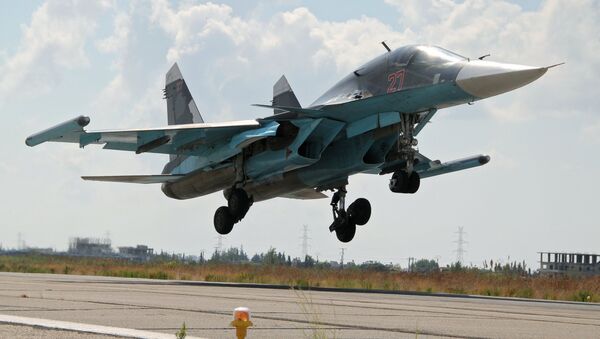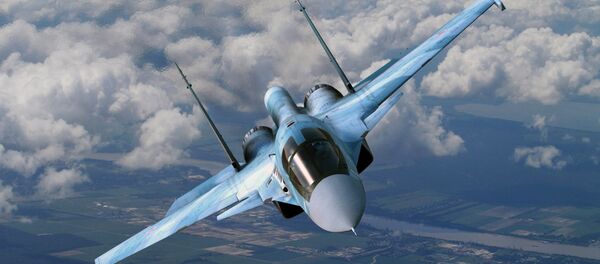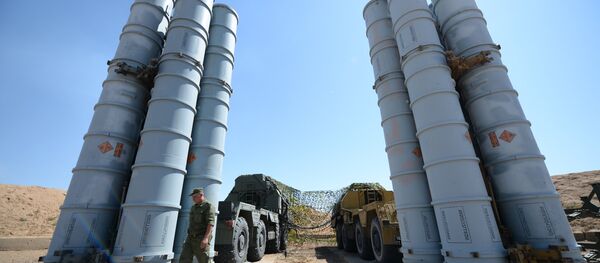Russia is returning to the Middle Eastern arms market, Nikolay Kozhanov of London-based Chatham House, the Royal Institute of International Affairs, highlights in his recent analytical report.
"The Middle Eastern arms market is not new for Russia. The Soviet Union exported weapons to Algeria, Egypt, Syria, Iraq, Iran, Libya, Sudan and Yemen. But the fall of the USSR led to a drop in Russian arms exports," the academic reveals, adding that in the wake of the collapse of the Soviet Union the country's military industry was seriously damaged.
"Russian weapon producers made several attempts to enter the arms markets in the Gulf but failed to create long-standing positions as Western rivals successfully defended their existing relationships," Kozhanov underscores.
However, the situation has changed dramatically after Russia stepped in in Syria in response to an official request from Damascus.
"The Syrian war has reinvigorated Russian arms exporters, as their weapons have proved their reliability on the battlefield," Kozhanov stresses.
In April it was announced that Amman and Jordan were conducting consultations on acquiring Su-32 (export version of Su-34) fighter-bomber jets, as the Russian anti-terror campaign in Syria raised popularity of these bombers.
In May the Turkish newspaper BirGun reported that Morocco, Algeria and Tunisia are shifting towards Russia as an arms supplier.
"Military cooperation between Russia and Muslim countries, especially in North Africa, is building up. Morocco, Tunisia and Algeria are now facing the threat of jihadist violence and want to enhance their security systems… Now, Russia is a global power and Muslim countries facing security threats are now looking for military cooperation with Moscow," the media outlet noted.
Following the inking of the nuclear deal and partial lifting of sanctions on Iran, Tehran and Moscow accelerated their talks regarding the delivery of four S-300 surface-to-air missile system battalions to Iran.
Sergei Chemezov, CEO of Rostec Corporation, said the S-300 delivery to the Middle Eastern country is due to be completed by the end of this year.
"Between 2011 and 2015 the volume of weapons contracts signed between Moscow and Middle Eastern countries increased substantially, and included a Russian return to Egyptian and Iraqi weapons markets that have recently been dominated by the US," Kozhanov points out, highlighting that "Russia signed a $3.5 billion package of agreements with Cairo in 2014, under which Moscow is supposed to sell Egypt MIG-29M/M2 fighter jets, Mi-35M strike helicopters, S-300VM missile complexes and a coastal defense system."
However, according to Kozhanov, Russia's interest is not purely economic.
He explains that arms exports usually mean that importers will need the assistance of their suppliers to service and upgrade their weapons. This creates the preconditions for a more permanent presence in the market.
But that is not all: by gaining the reputation of a reliable military partner and arms supplier, Moscow is likely to boost its geopolitical positions in the Middle East.




